DONGLIM PIPING CO., Ltd
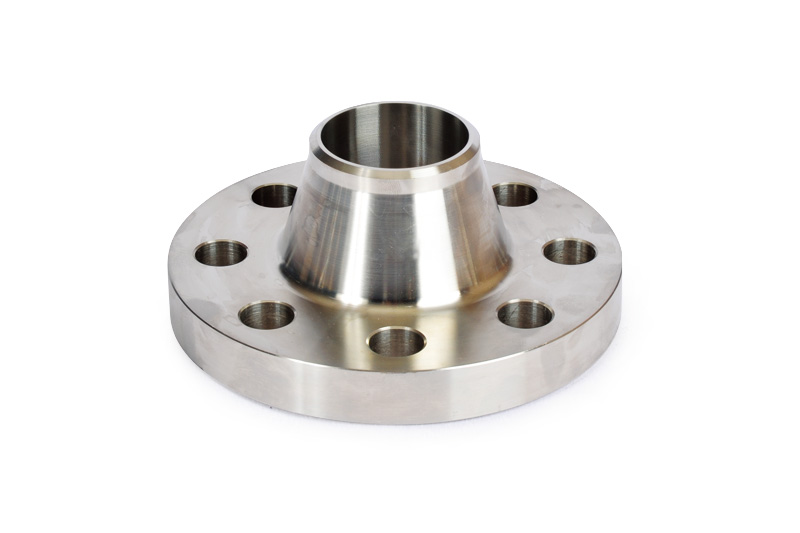
The welding neck flange is normally reffered to as the "high hub" flange. It is designed to transfer stresses to the pipe, thereby reducing high stress concentrations at the base of the flange. The welding neck flange is the best designed butt-welded flange of those currently available because of its inherent structural value.
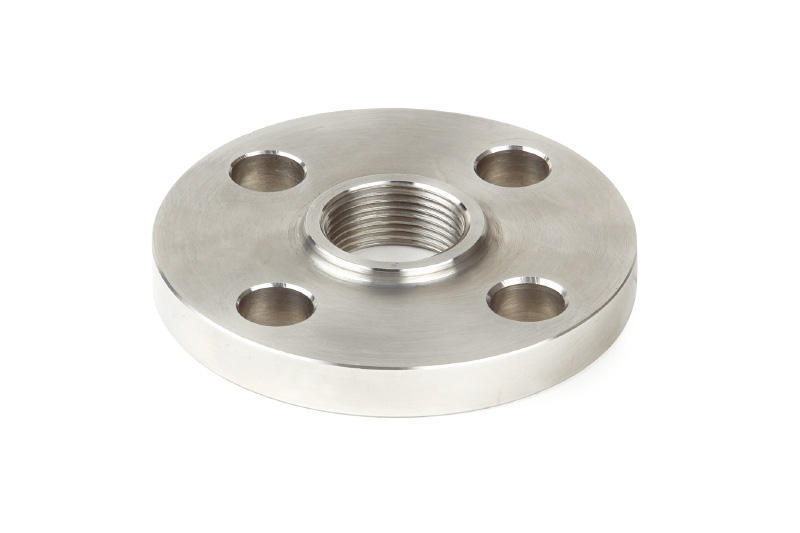
The threaded flange is similar to the slip-on flange, but the bore is threaded. Its chief merit is that it can be assembled without welding, explaining its use in low pressure services at ordinary atmospheric temperatures, and in highly explosive areas where welding create a hazard.
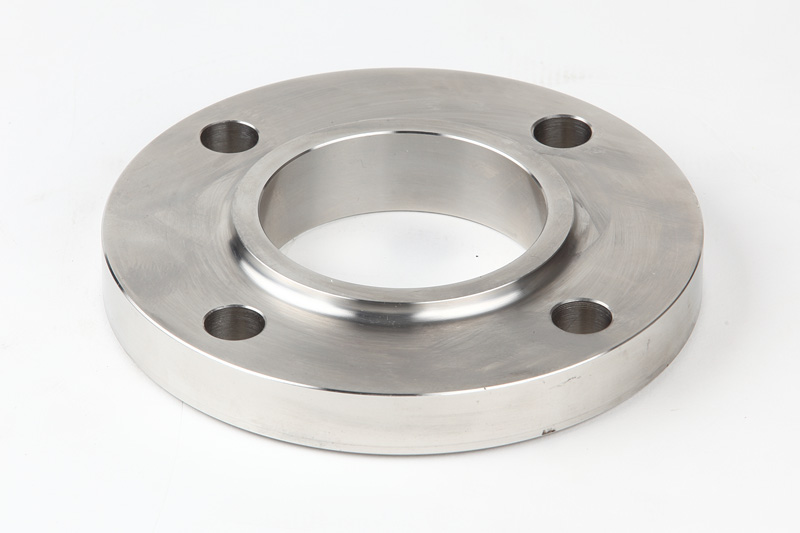
The Slip-On Flange has a low hub because the pipe slips into the flange prior to welding. It is welded both inside and out to provide sufficient strenght and prevent leakage. Slip-on flanges are all bored slightly larger than the outside diameter of the matching pipe. They are preferred over welding neck flanges by many users due to their lower initial cost, but final installation cost is probably not much less than that of the welding neck flange because of the additional welding involved.
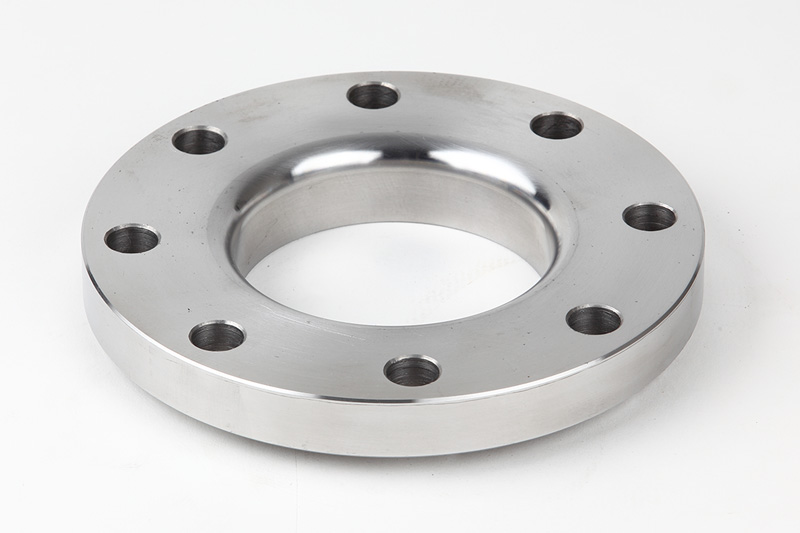
The lap joint is practically identical to a slip-on flange except it has a radius at the intersection of the bore and flange face. This radius is necessary to have the flange accommodate a lap joint stubend. Normally, a lap joint flanges and a lap joint stub end are matched together in an assembly system.

The blind flanges is a flange without a bore. It is used to close off the ends of a piping system and/or pressure vessel opening. It also permits easy access to the interior of a line or vessel once it has been sealed and must be reopened.
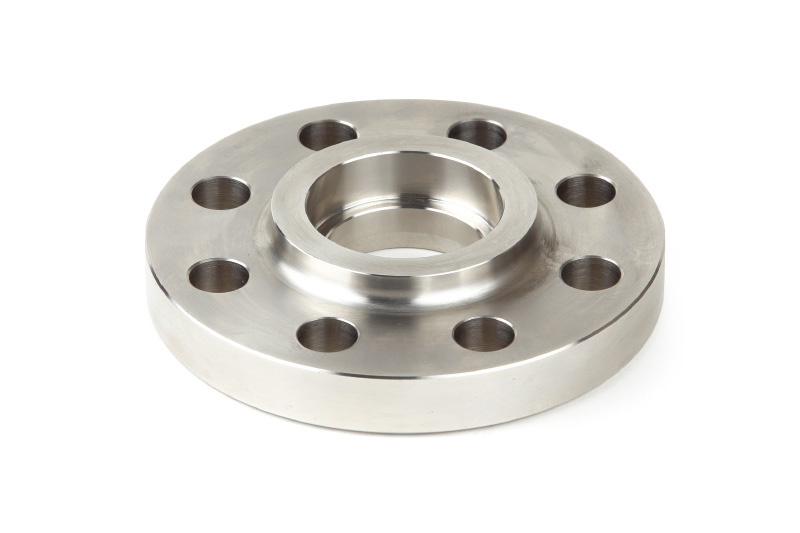
The socket welding flange is similar to a slip-on flange except it has a bore and a courterbore dimension. Then counterbore is slightly larger than the outside diameter of the matching pipe, allowing the pipe to be inserted into the flange similar to a slip-on flange. The diameter of the smaller bore is the same as the inside diameter of the matching pipe. A restriction is built into the bottom of the bore which sets as a shulder for the pipe to rest on. This eliminates any restriction in flow when using a socket welding flange.
WNRF Flange
SORF Flange
SWRF Flange
BLRF Flange
THRF Flange
LJFF Flange
Long Welding Neck Flange
AWWA Flange
WNRTJ Flange
ORIFICE Flange
LINE-BLANKS
BRANCH-OUTLET
NOZZLE-FLANGES
SAE
SQ-FLANGE
FORNT/REAR HEAD FLANGE
SHELL/HEAD FLANGE
DONGLIM PIPING CO., Ltd
ANSI/ASME |
B16.5 | PIPE FLANGES(~NPS 24) |
| B16.36 | ORIFICE FLANGES(~NPS 24) | |
| B16.47 | LARGE FLANGE-Series A / Series B(~NPS 60) | |
AWWA |
C207 | Steel Pipe Flanges for Waterwork Service(~NPS 144) |
API |
6A | Type 6B / 6BX FLANGE |
JIS |
B 2220 | STEEL PIPE FLANGE |
| B 2291 | 21 Mpa Slip-On Welding Pipe Flanges For Hydraulic Use | |
| F 7806 | Ship's 280K and 350K Socket Welding Pipe Flanges | |
DIN |
WELDING NECK | STEEL PIPE FLANGE |
| SLIP-ON | 21 Mpa Slip-On Welding Pipe Flanges For Hydraulic Use | |
| BLIND | Ship's 280K and 350K Socket Welding Pipe Flanges |
A flange is a method of connecting pipes, valves, pumps and other equipment to form a piping system. It also provides easy access for cleaning, inspection or modification. Flanges are usually welded or screwed. Flanged joints are made by bolting together two flanges with a gasket between them to provide a seal.